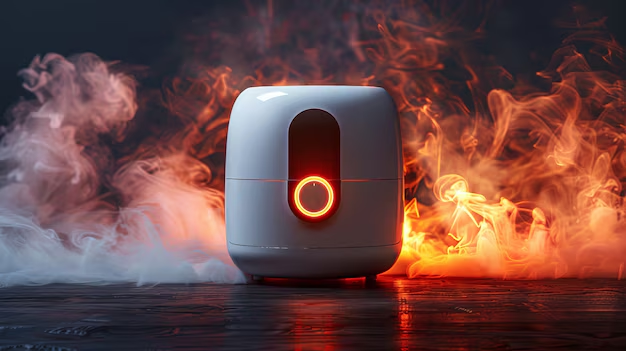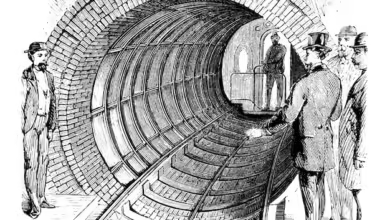Is a goodman 80k gas furnace 4 ton drive noisy

Introduction to Goodman 80K Gas Furnaces
When it comes to home heating, the Goodman 80K gas furnace with a 4-ton drive is a popular choice for both residential and light commercial spaces. Known for its reliability and performance, Goodman has a strong reputation in the HVAC industry. But, like many furnaces, some owners notice noise concerns, which may affect their overall satisfaction.
Importance of Furnace Noise Levels
Have you ever been in a quiet room only to be jolted by a loud clank or hum from your furnace? High noise levels can become a distraction, and in some cases, even interfere with comfort at home or work. Furnace noise levels are especially significant in bedrooms, offices, or any area where peace and quiet are essential.
Understanding the Noise Sources in Furnaces
Furnaces have several components that can contribute to noise. Blowers, burners, and motorized parts all have the potential to produce sound. Over time, as parts wear down, the noise can increase, becoming a sign of potential issues.
Why Goodman 80K Gas Furnace Might Be Noisy
Several factors can contribute to noise in a Goodman 80K gas furnace with a 4-ton drive. From installation issues to mechanical wear, understanding these common causes can help owners troubleshoot or determine if professional help is necessary. Goodman furnaces are generally competitive with other brands, but sometimes, specific installation or environmental factors make them louder.
Factors Influencing Noise Levels in Goodman Furnaces
- Installation Quality: A poorly installed furnace is much more likely to make noise. Correct positioning and secure mounting are crucial.
- Location of the Furnace: If the furnace is placed in a room with hard surfaces, sound may echo, amplifying the noise.
- Regular Maintenance: Worn-out components often generate more noise. Regular inspections and maintenance can significantly reduce noise.
Types of Noises and Their Causes
Humming or Buzzing Sounds
These sounds usually come from the blower motor or transformer. While humming isn’t always a concern, a sudden increase in volume could indicate a loose part or motor issue.
Rattling or Clanking Sounds
Rattling noises are often caused by loose panels, ductwork, or components within the furnace. If ignored, these can lead to more severe damage.
Whistling or High-Pitched Noises
Whistling sounds might signal airflow issues, which can arise from a clogged filter or obstructed vents.
Squealing Sounds
Squealing is typically caused by a belt or motor issue. Often, a worn-out blower belt or motor bearings will produce this sound.
Is the Goodman 80K Gas Furnace Known for Noise Issues?
Generally, Goodman furnaces don’t have a reputation for excessive noise, but user reviews show that certain models or installations may have isolated issues. The 80K model’s noise level often depends on setup quality, room acoustics, and routine care.
How to Reduce Furnace Noise Levels
Looking for ways to enjoy a quieter home? Here are a few tips:
- Add Insulation: Insulate the room or ductwork around the furnace to dampen noise.
- Secure Loose Parts: Tightening screws and panels can help eliminate rattles.
- Invest in Soundproofing Mats: Placing mats under the furnace can absorb sound and vibration.
When to Call a Professional for Furnace Noise
If your Goodman furnace is unusually loud or you notice any sharp, persistent noises, it might be time to call an HVAC professional. Unusual noises could indicate worn components, ductwork problems, or other mechanical issues.
Maintenance Tips for a Quieter Furnace
Routine maintenance is key to keeping your furnace running quietly:
- Replace Air Filters Regularly: Clogged filters reduce airflow and cause the furnace to work harder, which may increase noise.
- Inspect Blower Belts and Motors: Worn parts should be replaced promptly to prevent unnecessary noise and further damage.
- Clean and Lubricate Moving Parts: Dust buildup and dry bearings can also lead to excessive noise.
Choosing the Right Furnace Size and Drive for Noise Control
Selecting the right furnace size is crucial for efficiency and noise reduction. A 4-ton drive may be necessary for larger spaces, but in smaller homes, it might result in a louder setup due to increased airflow.
Evaluating Furnace Noise in Goodman Models
Goodman furnaces are generally designed with noise control features. User satisfaction varies depending on installation, but most report moderate noise levels when properly maintained.
Other Furnace Brands with Low Noise Levels
If a quieter furnace is a top priority, comparing Goodman to brands like Trane or Lennox may be beneficial. Some alternative brands focus heavily on noise reduction technology.
Should You Consider a Goodman 80K Gas Furnace?
If noise is manageable with simple tweaks, the Goodman 80K gas furnace can be an excellent choice for its heating power and reliability. Just keep in mind the importance of good installation and regular maintenance.
Conclusion
In conclusion, the Goodman 80K gas furnace with a 4-ton drive is generally reliable but may develop noise issues based on installation and maintenance factors. By understanding potential noise sources and following routine maintenance tips, homeowners can enjoy a quieter, more comfortable heating experience.
FAQs
What causes a Goodman 80K gas furnace to be noisy?
Noise can result from loose parts, worn belts, or airflow restrictions.
How can I reduce the noise from my Goodman furnace?
Tighten loose components, add insulation, and regularly service the furnace.
Are Goodman furnaces generally noisier than other brands?
Goodman furnaces are comparable to other brands, though installation and environment play a big role.
When should I call a professional for furnace noise?
If you hear sudden loud or unusual noises, it’s best to consult a professional.
What maintenance can help reduce furnace noise?
Replacing filters, cleaning parts, and tightening loose panels can help keep the furnace quiet.




